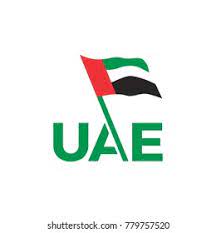
South Africa said on Friday it had learned with “shock and dismay” that the United Arab Emirates had turned down its request to extradite two brothers accused of orchestrating industrial-scale corruption.
The justice minister, Ronald Lamola, bluntly accused the UAE of “non-cooperation” after being informed late on Thursday of a court ruling against extraditing the tycoons Atul and Rajesh Gupta.
“We learnt with shock and dismay that the extradition hearing had been concluded in the Dubai court on the 13 February 2023 and our extradition request was unsuccessful,” Lamola said in a statement.
But in the UAE, state media said there had been problems with South Africa’s paperwork and that the South African authorities had been briefed “at every step”.
The two Guptas along with a third brother, Ajay, built a sprawling business empire in South Africa over two decades after migrating from India.
Investigators say they colluded with the former president Jacob Zuma to siphon off state assets under a system that, according to one estimate, cost the country several billion dollars.
They fled in 2018 as pressure over the scandal began to mount.
Last year South Africa and the UAE signed an extradition treaty, and in July South Africa applied for Atul and Rajesh Gupta to be handed over after the pair were arrested in Dubai.
South Africa’s case centres on an alleged 25m rand ($1.6m) fraud linked to an agricultural feasibility study.
Ajay Gupta has not been indicted in the case, but has been named in another embezzlement and corruption case.
Lamola said the extradition had been denied on a technicality.
The Dubai court, he said, determined that the UAE had jurisdiction on the charge of money laundering, as the crime in question was alleged to have been committed in the country as well as in South Africa.
As to the charge of fraud and corruption, “the court found that the arrest warrant relating to this charge was cancelled,” Lamola said.
“The reasons provided for denying our request are inexplicable and fly in the face of the assurances given by Emirati authorities that our requests meet their requirements.”
Lamola accused the UAE of failing to properly consult the South African government before the extradition was rejected. Such a “level of non-cooperation” was “highly unprecedented,” he said.
He said authorities had received only an Arabic summary of the judgment late on Thursday and had had to work overnight to understand and analyse the document.
“That is the life we have been living with the authorities in the UAE,” a frustrated Lamola told a press briefing.
“We still intend to engage our counterparts … to ensure that the decision of the court is promptly appealed,” he added.
The UAE said its judicial authorities had briefed their South African counterparts “at every step,” according to the official WAM news agency.
The applications notably lacked a copy of the arrest warrant order or included an invalid one, WAM said.
“The UAE judiciary underscored that South African authorities are able to resubmit the extradition request with new and additional documentation,” it added.
South Africa’s leading opposition party, the Democratic Alliance (DA), described the “bungled” extradition attempt as “a national embarrassment”.
A marathon investigation published last year said the three brothers lay at the heart of a web of corruption under Zuma’s nine-year tenure.
